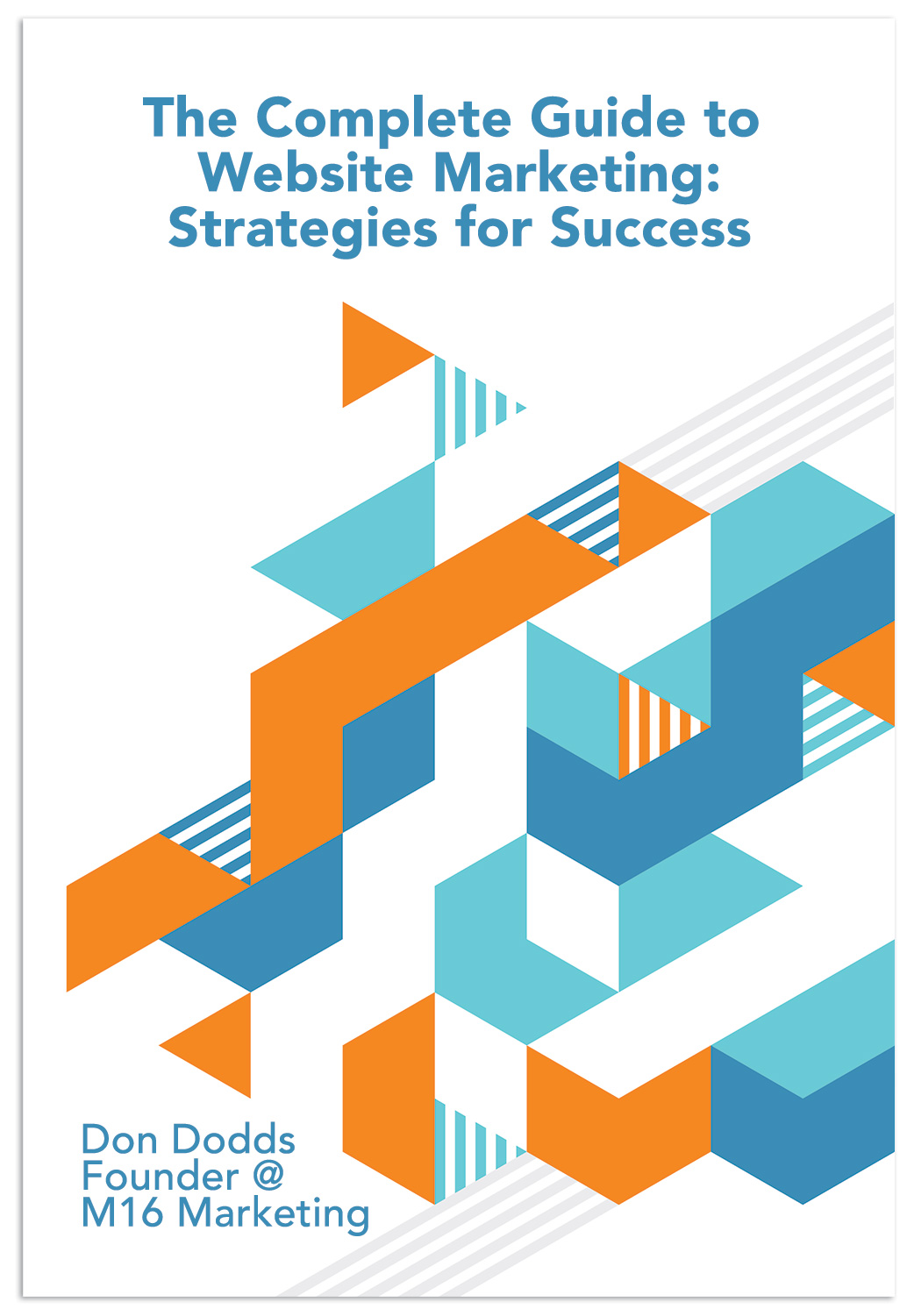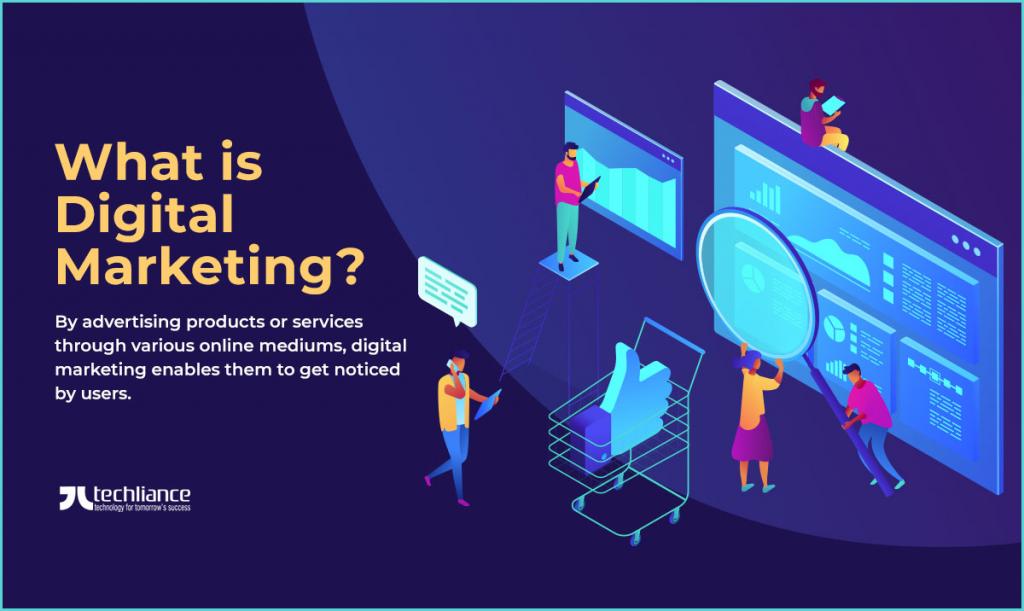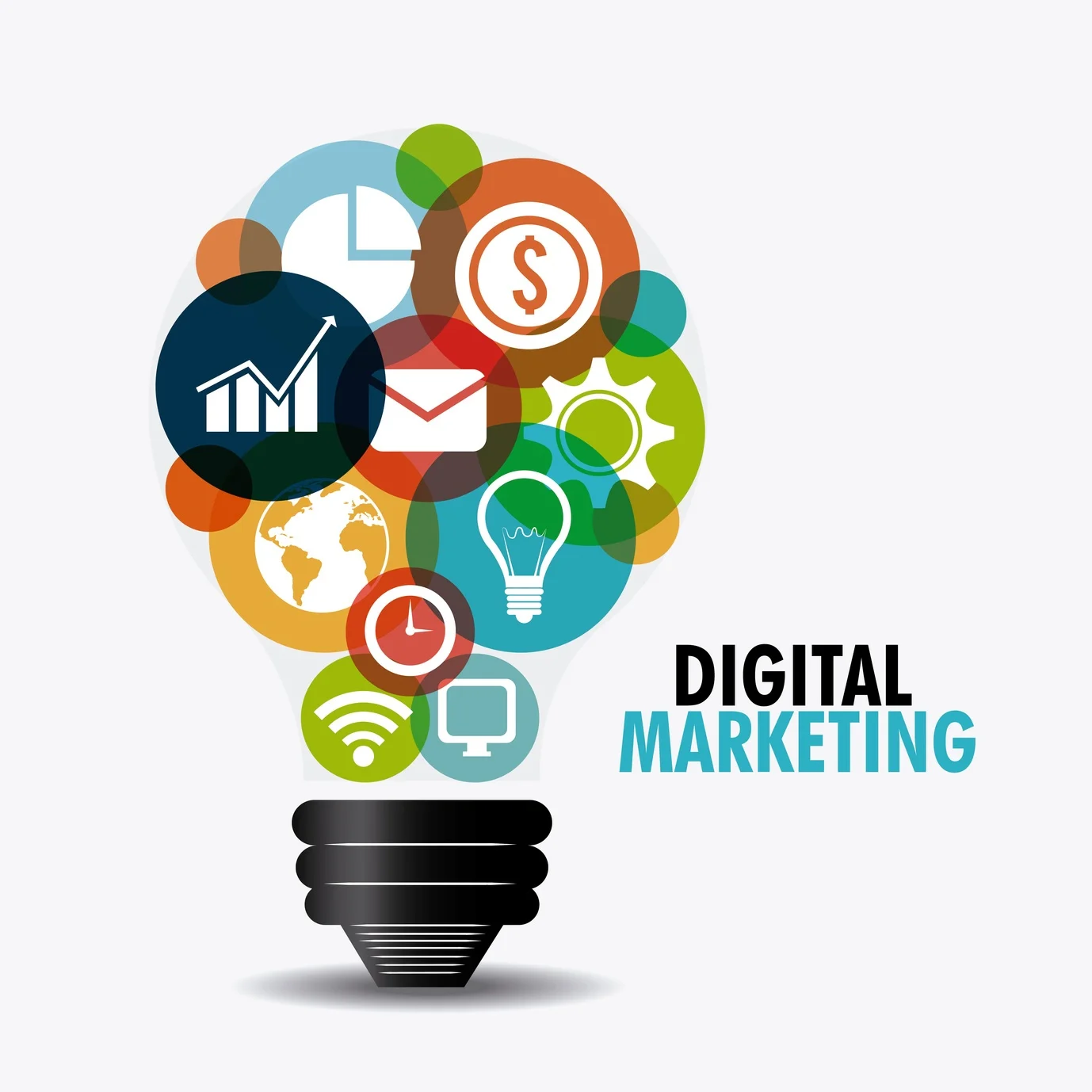Understanding Online Marketing

Understanding Online Marketing is crucial for businesses to thrive in today’s digital landscape. It refers to the use of various strategies and techniques to promote products or services on the internet. Online marketing encompasses a wide range of activities, including website optimization, social media marketing, search engine optimization (SEO), email marketing, and more.
By utilizing online marketing effectively, businesses can expand their reach, target specific audiences, and drive traffic to their websites. It allows businesses to connect with potential customers and build brand awareness in a cost-effective manner. With the right strategies and tools, businesses can achieve online marketing success and stay ahead of the competition in today’s digital marketplace.
Introduction to Online Marketing

Online marketing is a crucial aspect of business growth in today’s digital era. It involves using various strategies and techniques to promote products or services on the internet. With the increasing number of internet users and their reliance on online platforms for information and purchase decisions, businesses need to establish a strong online presence. Online marketing allows businesses to reach a wider audience, build brand awareness, generate leads, and drive conversions. It encompasses activities such as website optimization, social media marketing, SEO, email marketing, and more. By effectively utilizing online marketing, businesses can stay competitive and thrive in the digital marketplace.
Key Components of a Successful Online Marketing Strategy

A successful online marketing strategy comprises several key components that work together to achieve business goals. These components include effective audience targeting, compelling content creation, strategic keyword optimization, engaging social media presence, and regular performance monitoring. Targeting the right audience ensures that marketing efforts reach the desired demographic, while compelling content keeps them engaged and interested in the brand. Keyword optimization helps improve search engine rankings and increase visibility. A strong social media presence allows for direct interaction with customers and facilitates brand awareness. Regular monitoring of analytics helps evaluate the effectiveness of marketing strategies and make necessary adjustments for continuous improvement. By implementing these components successfully, businesses can create a robust online marketing strategy that drives growth and success.
Website Optimization

Website optimization is a crucial aspect of online marketing that focuses on improving the performance and user experience of a website. It involves various techniques and practices to enhance website speed, navigation, and responsiveness. By optimizing the website, businesses can attract more visitors, reduce bounce rates, and increase conversions. Effective techniques for website optimization include optimizing images and videos, compressing files, minifying code, improving mobile responsiveness, and implementing caching strategies. A well-optimized website not only improves the user experience but also boosts search engine rankings, leading to increased visibility and organic traffic.
Importance of Website Optimization

Website optimization plays a vital role in the success of online marketing strategies. A well-optimized website improves user experience, increasing visitor engagement and conversion rates. When a website is fast, responsive, and easy to navigate, it keeps visitors on the site for longer periods and reduces bounce rates. Additionally, optimized websites rank higher in search engine results, leading to increased visibility and organic traffic. By optimizing images, compressing files, and implementing caching strategies, businesses can ensure that their website loads quickly on all devices. This ultimately helps businesses attract more visitors and achieve their online marketing goals.
Effective Techniques for Improving Website Performance

Effective Techniques for Improving Website Performance
- Optimize Images: Compressing and resizing images can significantly reduce page load times, improving the overall performance of your website.
- Minify CSS and JavaScript: Remove unnecessary characters and spaces from your code, reducing file sizes and allowing your website to load faster.
- Enable Caching: Implementing caching strategies allows your website to store data locally on a user’s device, reducing server requests and speeding up load times.
- Use Content Delivery Networks (CDNs): CDNs distribute website content across multiple servers globally, ensuring that users can access it quickly from their nearest server location.
- Eliminate Redirects: Minimize the number of redirects on your website, as each redirect adds additional time to the page load process.
By implementing these techniques, you can enhance your website’s performance, providing a better user experience and increasing the chances of converting visitors into customers.
Social Media Marketing

Social Media Marketing is a powerful tool for businesses to reach and engage their target audience. It allows companies to promote their products or services, create brand awareness, and drive website traffic. By utilizing social media platforms such as Facebook, Instagram, Twitter, and LinkedIn, businesses can communicate directly with their customers and build a loyal following. Strategies for social media marketing involve creating compelling content, utilizing hashtags and keywords, engaging with followers through comments and messages, and running targeted advertising campaigns to reach specific demographics. Implementing an effective social media marketing strategy can significantly enhance a company’s online presence and customer engagement.
Utilizing Social Media Platforms for Marketing

Social media platforms have become essential tools for businesses to connect with their target audience. With billions of users worldwide, platforms like Facebook, Instagram, Twitter, and LinkedIn offer a vast reach for marketers. These platforms allow businesses to share engaging content, promote products or services, and interact directly with customers. By utilizing features such as hashtags, paid advertising campaigns, and targeted posts, companies can effectively reach their desired demographic. Furthermore, social media offers valuable insights and analytics to track engagement and measure the success of marketing efforts. Leveraging the power of social media can significantly impact a business’s online presence and customer engagement.
Strategies for Engaging Your Audience on Social Media

Once you have established your presence on social media platforms, it is crucial to engage and connect with your audience effectively. One strategy for engaging your audience is to create compelling and shareable content. This can include informative articles, entertaining videos, or visually appealing images. Encourage your followers to comment, like, and share your posts to increase engagement. Another strategy is to actively respond to comments and messages from your audience, showing that you value their input and are attentive to their needs. Hosting contests or giveaways can also boost engagement by encouraging participation and creating a sense of excitement around your brand. Furthermore, regularly monitoring analytics and tracking the success of your social media campaigns will enable you to refine your strategies and better understand what content resonates with your target audience. By implementing these strategies, businesses can enhance their online presence and foster meaningful connections with their audience.
Search Engine Optimization (SEO)

Search Engine Optimization (SEO) is a crucial aspect of online marketing. By optimizing your website for search engines, you can improve your organic search rankings and increase visibility to your target audience. SEO involves various techniques, including keyword research, on-page optimization, link building, and technical optimization. It is essential to follow best practices such as creating high-quality content, using relevant keywords, optimizing meta tags, and improving website speed and user experience. By implementing effective SEO strategies, businesses can drive more organic traffic to their websites and improve their overall online marketing success.
Fundamentals of SEO

Search Engine Optimization (SEO) is a fundamental aspect of online marketing. It involves optimizing your website to improve its visibility and rankings on search engine results pages. The key fundamentals of SEO include keyword research, on-page optimization, link building, and technical optimization. Keyword research helps you identify the terms and phrases your target audience is searching for. On-page optimization involves optimizing your website’s content, meta tags, and URL structure. Link building focuses on acquiring quality backlinks from reputable websites. Technical optimization includes improving website speed, mobile responsiveness, and site architecture. By mastering these fundamentals, businesses can enhance their online presence and attract more organic traffic.
Best Practices for Improving Search Engine Rankings

To improve search engine rankings and increase organic traffic to a website, it is important to follow best practices for SEO. First, conduct thorough keyword research to identify relevant and high-volume keywords to target. Next, optimize on-page elements such as meta tags, headings, and URL structure with these keywords. Create high-quality and engaging content that provides value to users and encourages them to stay on the website. Building quality backlinks from reputable websites is essential for improving search engine rankings. Regularly monitoring and analyzing website performance using analytics tools can help identify areas for improvement and refine SEO strategies.
Email Marketing

Email marketing is a powerful tool in the online marketer’s arsenal. It allows businesses to connect directly with their target audience and build strong relationships. One of the main benefits of email marketing is its cost-effectiveness, as it requires minimal investment compared to other marketing channels. Additionally, email campaigns can be highly personalized, allowing businesses to deliver tailored messages and offers to individual subscribers. To create effective email campaigns, marketers should focus on crafting compelling subject lines, engaging content, and clear calls-to-action. Regularly analyzing campaign performance and metrics such as open rates and click-through rates can help optimize future email marketing efforts.
Benefits of Email Marketing

Email marketing offers several benefits for businesses looking to reach their target audience effectively. Firstly, it is a cost-effective marketing channel as it requires minimal investment compared to other strategies. Email campaigns can also be highly personalized, allowing businesses to deliver tailored messages and offers directly to individual subscribers, increasing engagement and conversions. Moreover, email marketing allows companies to build strong relationships with their customers, fostering loyalty and repeat business. Additionally, email campaigns provide valuable data and metrics that can be analyzed to optimize future marketing efforts. Overall, email marketing is a powerful tool for businesses to connect with their audience and drive results.
Creating Effective Email Campaigns

Creating effective email campaigns is crucial for achieving online marketing success. To create impactful campaigns, businesses must first define their objectives and target audience. They should segment their email lists based on demographics, interests, or past interactions to ensure personalized and relevant content. The subject line should be attention-grabbing, and the email content should be concise, informative, and visually appealing. Including a clear call-to-action can drive recipients to take desired actions. Regularly testing and optimizing campaigns based on open rates, click-through rates, and conversions is essential for maximizing results. By adhering to these strategies, businesses can create compelling email campaigns that engage subscribers and drive desired outcomes.
Analytics and Monitoring

Analytics and monitoring play a crucial role in measuring the success of online marketing strategies. By utilizing analytics tools such as Google Analytics, businesses can gather valuable data on website traffic, user behavior, and conversion rates. These insights help marketers identify areas for improvement and make data-driven decisions to optimize their campaigns. Key performance indicators (KPIs) such as click-through rates, conversion rates, and customer lifetime value should be tracked to evaluate the effectiveness of different marketing channels. Regularly monitoring these metrics allows businesses to adjust their strategies accordingly and achieve their online marketing goals.
Utilizing Analytics Tools for Measuring Marketing Success

Analytics tools play a crucial role in measuring the success of online marketing strategies. By utilizing tools like Google Analytics, businesses can gather valuable data on website traffic, user behavior, and conversion rates. These insights provide valuable information to marketers, allowing them to identify areas for improvement and make data-driven decisions to optimize their campaigns. Key performance indicators (KPIs), such as click-through rates, conversion rates, and customer lifetime value, should be regularly tracked to evaluate the effectiveness of different marketing channels. Regular monitoring of these metrics enables businesses to adjust their strategies accordingly and achieve their online marketing goals.
Tracking Key Performance Indicators for Online Marketing Strategies

Tracking key performance indicators (KPIs) is essential for evaluating the effectiveness of online marketing strategies. KPIs provide valuable insights into the performance and success of various marketing channels. Some important KPIs to track include click-through rates, conversion rates, customer acquisition cost, and customer lifetime value. By monitoring these metrics, businesses can make data-driven decisions and optimize their marketing campaigns accordingly. Additionally, utilizing analytics tools like Google Analytics allows for in-depth tracking and analysis of KPIs, enabling marketers to identify areas for improvement and enhance their online marketing strategies for better results.
